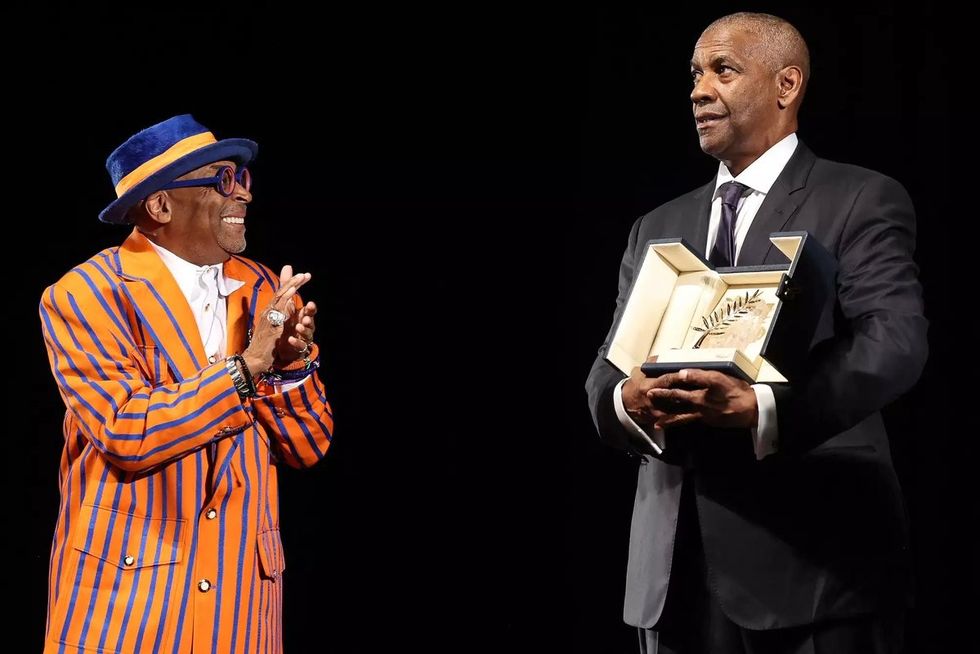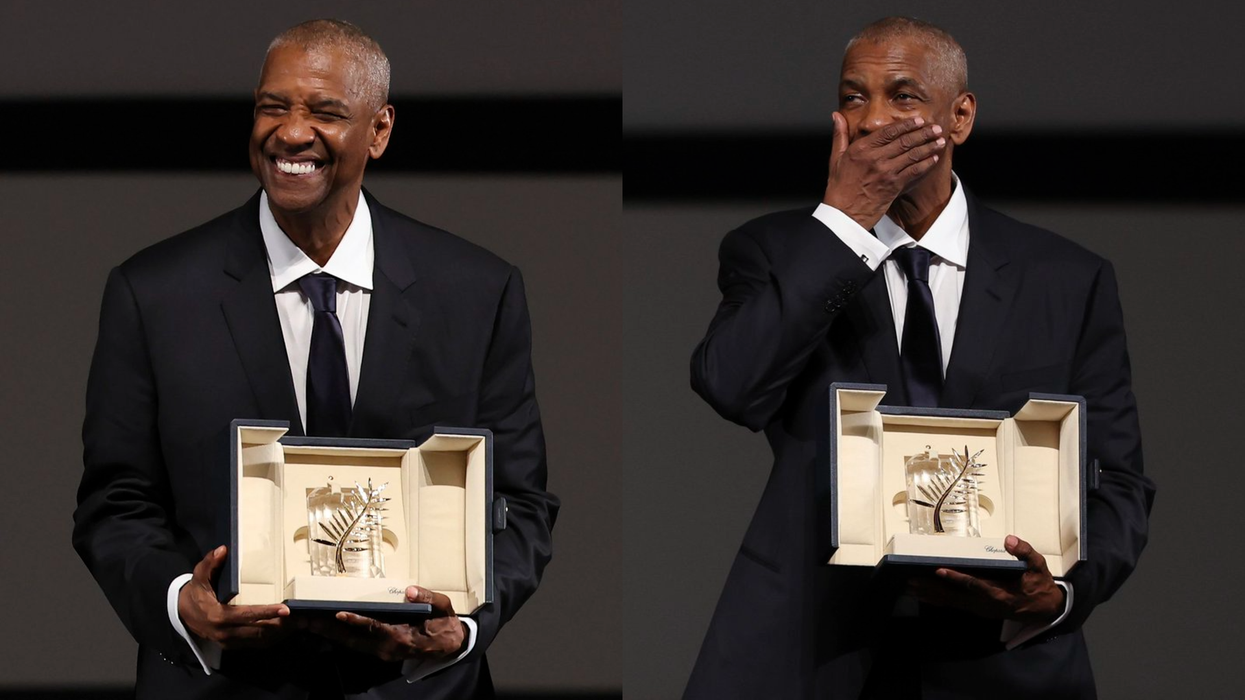Cannes 2025 took an emotional turn when Denzel Washington was presented with an unexpected Honorary Palme d’Or just before the premiere of Highest 2 Lowest, his latest film with long-time collaborator Spike Lee. The moment came as a surprise not just to audiences, but to Washington himself.
The announcement was made by Cannes festival director Thierry Frémaux after a career-spanning tribute reel played at the Palais. Spike Lee, who has directed Washington in five films, stepped on stage to hand over the award personally. “This is my brother,” Lee said, pulling Washington into a warm embrace. The audience responded with a long-standing ovation.

Washington, visibly moved, called the moment “completely unexpected.” “I’m emotional right now,” he told the crowd. “To be back here with Spike, to make another film together, I’m grateful. Truly grateful.”
The film they’re reuniting on, Highest 2 Lowest, is Lee’s take on Akira Kurosawa’s 1963 classic High and Low. Washington plays King David, a music mogul caught in a kidnapping mix-up involving his son and his driver’s child. The cast includes Aubrey Joseph, Elijah Wright, Jeffrey Wright, A$AP Rocky, Ice Spice, and Wendell Pierce. The film is being shown out of competition at Cannes and will release in cinemas on 22 August before streaming on Apple TV+ in September.
This is only Washington’s second time at Cannes. His first was over three decades ago, in 1993, for Much Ado About Nothing. The Honorary Palme d’Or is rarely given, only 22 recipients since 2002, and even fewer have received it without prior announcement. The last time this happened was in 2022, when Tom Cruise was surprised with the honour for Top Gun: Maverick.
Washington’s film legacy is already packed with milestones: two Oscars, a Tony Award, a Presidential Medal of Freedom, and multiple Oscar nominations including for Malcolm X, Flight, Fences, and The Tragedy of Macbeth. But this Cannes honour adds another rare jewel to his crown.
The award also landed on a symbolic date: 16 years to the day after Do the Right Thing, Lee’s breakthrough film, made its explosive Cannes debut. Monday night wasn’t just a celebration of Denzel Washington, but a nod to a creative partnership that continues to shape cinema even today.





